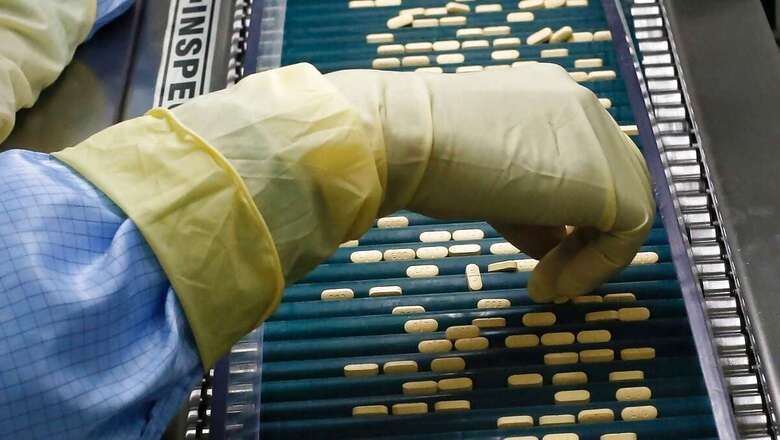
views
The central government has decided to implement ‘Schedule M’ to tighten the manufacturing practices of pharmaceutical companies in India. “Schedule M is equivalent to WHO-GMP. This move will help Indian MSME companies to upgrade their units. We are ready to provide handholding to these units,” said union health minister Mansukh Mandaviya on Wednesday.
Mandaviya said companies below the turnover of Rs 250 crore will be given a year for making the transition, whereas companies above the turnover of Rs 250 crore will be asked to execute ‘Schedule M’ in the next six months starting August 1.
“The draft of Schedule M prepared in 2018 has been approved and implemented,” he said.
According to government data, there are around 10,500 manufacturing units in the country, of which at least 8,500 are in the category of micro, small and medium enterprises (MSME). Of these, 2,000 are approved by the World Health Organization certified as WHO-GMP (Good Manufacturing Practices).
News18 first reported in May that the health ministry is working on bringing ‘Schedule M’ to retain the confidence of global health regulators on made-in-India medicines. Alongside, the Centre has been conducting risk-based inspections across India.
READ | India Begins Work on Revising ‘Schedule M’ of Drug Laws to Win Over Trust of Global Regulators
Based on the results of these inspections, the health ministry has realised the need to relook current GMP regulations and quality management systems. “A need was felt to bring our GMP recommendations and compliance expectations at par with global standards, especially those of WHO, and ensure production of globally acceptable quality of drugs,” Mandaviya said.
The move is also driven by the constant suggestion given by the ministry of commerce and industry along its pharma export arm Pharmexcil to upgrade and apply ‘Schedule M’ of the Drugs and Cosmetics Act, 1940.
The move holds relevance as India has been facing several allegations by global regulators, including contamination complaints by Gambia, Uzbekistan, US, Marshall Islands and Micronesia. Some of these were even highlighted by WHO’s drug alert raising questions over the quality of Indian drugs.
READ | Gambia-Uzbekistan By-product: India Initiates System of Checking Cough Syrups in Govt Labs before Exporting
How will ‘Schedule M’ bring change?
Major changes that will take place after the implementation of the new schedule include audit of suppliers, validation of equipment, specific requirements for manufacturing hazardous products and biological products, self inspection and quality audit team.
‘Schedule M’ deals with good manufacturing practices for premises, material and requirements for plants and equipment. It also contains details about quality control systems, quality control laboratories, cleaning of equipment, housekeeping, cross-contamination among other issues.
In 2018, ‘Schedule M’ was revised in sync with the Centre’s plan to implement uniform standards for the drug manufacturing industry ahead of joining the Pharmaceutical Inspection Cooperation Scheme (PICS), a global mechanism to improve cooperation in GMPs between regulators. The PICS compliance helps in promoting drug exports as it offers greater market access and also makes it easier for global regulators to trust the quality of medicinal products.
From April, the ministry of health and family welfare was working on the revision of the schedule along with the department of pharmaceuticals (DoP) – an arm under the ministry of chemicals and fertilisers.



















Comments
0 comment